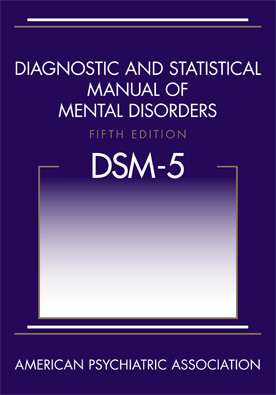Experts Say 'Psychiatry's Guide Is Out of Touch With Science.' What Science?

With the fifth edition of the American Psychiatric Association's Diagnostic and Statistical Manual of Mental Disorders (DSM-5) scheduled to be published later this month, a story in today's New York Times quotes experts who think "Psychiatry's Guide Is Out of Touch With Science" (as the headline puts it). No less an authority than Thomas Insel, director of the National Institute of Mental Health (NIMH), complains that the DSM continues to suffer from a "lack of validity." In other words, we cannot be confident that psychiatry's bible, on which mental health professionals rely every day to diagnose patients and (not incidentally) get paid by medical insurers, identifies things that actually exist. That's a pretty big problem.
Broad Institute neuroscientist Steven Hyman, a former NIMH director, says the DSM's symptom-based taxonomy is "an absolute scientific nightmare." The NIMH is "reorienting its research away from DSM categories" because "patients with mental disorders deserve better," Insel recently explained on the institute's blog. "As long as the research community takes the DSM to be a bible," he tells the Times, "we'll never make progress."
What does Insel mean by "progress"? Or to put it another way, what is the "science" with which experts think the DSM should be in touch? The Times explains that critics like Insel and Hyman hope "the science of psychiatry [will] follow the direction of cancer research, which is moving from classifying tumors by where they occur in the body to characterizing them by their genetic and molecular signatures." I think they've skipped a step. While oncologists deal with objectively verifiable tumors, psychiatrists deal with hypothetical disorders identified by patterns of behavior. If those symptoms correspond to a biological abnormality, it is not one that can be verified by physical testing or examination. Shouldn't psychiatrists locate their "tumors" before investigating what causes them?
So far the search for the biological basis of mental illnesses has met with little success. University of Pittsburgh psychiatrist David Kupfer, who chaired the panel that produced the DSM-5, explains that the new edition does not incorporate the diagnostic insights gained from such research because there are none. "The problem that we've had in dealing with the data that we've had over the five to 10 years since we began the revision process," he tells the Times, "is a failure of our neuroscience and biology to give us the level of diagnostic criteria, a level of sensitivity and specificity that we would be able to introduce into the diagnostic manual." Or as the Times puts it:
Basic research into the biology of mental disorders and treatment has stalled, [DSM critics] say, confounded by the labyrinth of the brain.
Decades of spending on neuroscience have taught scientists mostly what they do not know, undermining some of their most elemental assumptions. Genetic glitches that appear to increase the risk of schizophrenia in one person may predispose others to autism-like symptoms, or bipolar disorder. The mechanisms of the field's most commonly used drugs—antidepressants like Prozac, and antipsychosis medications like Zyprexa—have revealed nothing about the causes of those disorders. And major drugmakers have scaled back psychiatric drug development, having virtually no new biological "targets" to shoot for.
So the choice is between muddling along with the same symptom-based approach that has prevailed since the first edition of the DSM in 1952, with no way to know whether patients given the same label have the same underlying problem, and trusting in a supposedly more rigorous biological approach that so far has done nothing to improve diagnosis. Such is "the science of psychiatry."


Show Comments (61)